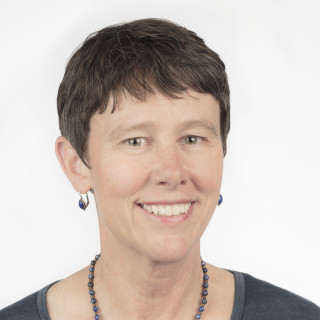It was amazing to see friends and colleagues in person again this year at the ADA meeting. To be part of the energy of the research and clinical advances working to decrease the burden of diabetes was extraordinary.
Despite the challenges of COVID-19, much has been learned in the last few years.
The meeting opened with the Pathway to a Cure scientific session; this was an exciting series of scientific presentations by extraordinary scientists supported by this program. Among the highlights were new insights into the genetic and physiological diversity in various African communities, and fields furthering research demonstrating the changes in islets in the human pancreas across the development of Type 2 diabetes. The latter confirmed the loss of beta-cell content and further different subpopulations of beta cells that are highly secretory versus more stressed with low secretory capacity; those were just two presentations. The pathway scientists are leading us into the future.
As a member of the diabetes professional practice committee, I was able to contribute an overview of the ADA Standards for Medical Care of Diabetes. This was a new type of session where we outlined how we put the standards of care (SOC) together, using chapter three as an example. We reviewed the evidence for changes made in 2022, and the importance of diabetes prevention, which highlighted the importance of diet and weight loss strategies, including pharmacological strategies, and the urgency of the issue in light of the increasing numbers of people living with diabetes. I think this session type should occur every year and will increase the visibility and impact of the SOC, which are so important for people with and at risk for diabetes.
In the interest of time, I will skip to my personal highlight. This year I was awarded the Albert Renold Award for mentorship. I cannot imagine a greater honor as mentoring is my true North. I had a great mentor in Dr. Boris Draznin. As a clinician-scientist, I learned early on that working in teams with different skill sets was crucial to addressing the big questions I wanted to bring from the bedside to the bench. I also learned early that clinician-scientists were in short supply and that the translational research workforce has a leaky pipeline that particularly impacts women and people from diverse backgrounds. Over the past few decades, I have been able to build programs to support early clinician-scientist careers and bolster the funding opportunities for clinician-scientists both at the NIH and within the ADA research programs. I have had the opportunity to work with many dedicated women as the founder of the Women's Interprofessional Network of the ADA and locally with my close collaborator Judy Regensteiner as a member of the Ludeman Family Center for Women’s Health Research. Most importantly, I have been able to serve as a research and career mentor to a generation or so of impressive young scientists. So many of my former mentees have successful research programs; it is a very gratifying tribute to their hard work. I have learned formal strategies to help these people succeed in generating publications and writing successful grant applications. I am so touched that this team has enriched my career and nominated me for this important award. The life of a clinician-scientist is truly the world's best job, and it is an unexpected pleasure to be recognized for mentoring people in this career.
Image by Grivina / GettyImages







